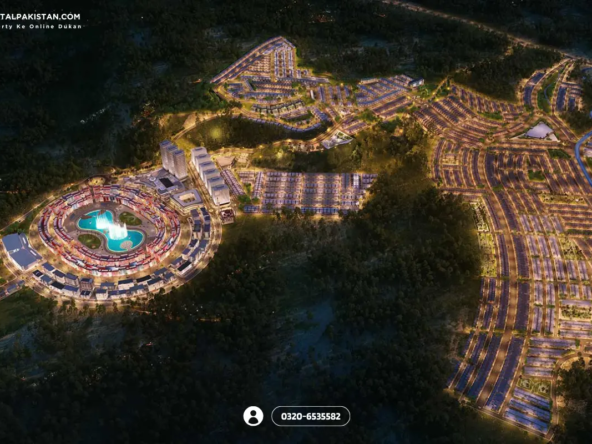In the ever-changing landscape of Pakistan’s real estate market, various economic factors play a pivotal role in shaping its dynamics. From inflation rates to government policies, the real estate sector is intricately linked with the country’s economic conditions. In this article, understanding the Impact of Economic Factors on Real Estate in Pakistan, we delve into how economic factors influence the real estate market in Pakistan, offering insights into its nuances and providing a comprehensive understanding of its impact.
Introduction
Pakistan’s real estate sector has shown remarkable growth over the years, but it’s deeply influenced by the economic landscape. Let’s explore how various economic factors intertwine with the property market.
Gross Domestic Product (GDP) Growth and Real Estate
The growth of the real estate sector is closely tied to the overall GDP growth of the country. A thriving economy spurs business activities and boosts disposable income, leading to increased demand for both residential and commercial properties.
Inflation’s Ripple Effect on Property Values
Inflation can have a significant impact on property values. As prices rise, the cost of construction materials and labor increases, influencing property development costs. Moreover, property prices might surge as investors seek to hedge against inflation by investing in tangible assets like real estate.
Interest Rates and Property Financing
Fluctuations in interest rates directly affect property financing costs. Higher interest rates can discourage potential buyers and investors from entering the market, leading to decreased demand and potentially lowering property prices.
Foreign Direct Investment (FDI) in Real Estate
Foreign investments play a crucial role in the real estate market. Stable economic conditions attract foreign investors, leading to increased property demand and potentially driving up prices. Conversely, economic instability can deter foreign investment and impact the sector.
Government Policies and Regulations
Government policies, such as taxation and property ownership regulations, significantly shape the real estate landscape. Investor-friendly policies can stimulate growth, while sudden policy changes can lead to uncertainty and fluctuations in the market.
Population Growth and Housing Demand
Pakistan’s population growth directly influences housing demand. As the population expands, the need for housing units increases, potentially driving up property prices in high-demand areas.
Urbanization and Commercial Real Estate
Rapid urbanization has led to increased demand for commercial spaces. Economic growth often translates to new businesses and startups, driving demand for office and retail spaces.
Infrastructure Development and Property Prices
The development of infrastructure, such as transportation networks and utilities, can lead to enhanced property values. Properties located in well-connected areas tend to command higher prices due to increased accessibility.
Socioeconomic Factors Shaping Real Estate Trends
Socioeconomic factors, including income distribution and social mobility, influence property preferences. Understanding these factors helps predict market trends and cater to specific buyer demographics.
Impact of Political Stability on Real Estate
Political stability fosters investor confidence. A stable political environment encourages long-term investments in real estate, leading to sustained growth.
Technological Advancements in Property Transactions
Technological innovations have revolutionized property transactions. Online property listings, virtual tours, and digital payment systems have made buying and selling properties more convenient.
Environmental Concerns and Green Real Estate
Increasing environmental awareness has led to the rise of green real estate. Properties with eco-friendly features are gaining popularity, driven by both consumer preferences and government incentives.
Crisis Resilience and Property Investments
The real estate market’s resilience during economic crises makes it an attractive investment option. Properties tend to retain value better than other assets during downturns.
Conclusion
Understanding the intricate relationship between economic factors and the real estate market is crucial for anyone looking to navigate Pakistan’s property landscape. By understanding the Impact of Economic Factors on Real Estate in Pakistan recognizing how GDP growth, inflation, government policies, and more influence the sector, investors, buyers, and sellers can make more informed decisions.

FAQs
How does inflation impact property investment?
Inflation can lead to higher construction costs and increased property demand as investors seek stable assets.
What role does foreign investment play in the market?
Foreign investment can drive property demand and enhance market growth, but it’s influenced by economic stability.
How do government policies affect property prices?
Investor-friendly policies can stimulate demand, while sudden changes can lead to market uncertainty.
Are urban areas more favorable for real estate investment?
Yes, rapid urbanization creates demand for commercial spaces and well-located residential properties.
Why is political stability important for the real estate sector?
Political stability boosts investor confidence, leading to sustained long-term investments in the property market.



